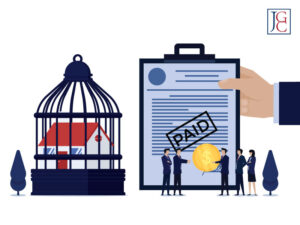Filing for bankruptcy can be a complex and overwhelming process, and one of the biggest concerns for individuals considering bankruptcy is what will happen to their assets. In this article, we will explore the topic of asset protection in bankruptcy specifically in the context of New Jersey. Understanding what assets you can keep in bankruptcy is crucial to alleviate some of the fears and misconceptions associated with the bankruptcy process.

What Assets are Protected in Bankruptcy in New Jersey?
When filing for bankruptcy in New Jersey, you may be relieved to know that certain assets are protected or exempt from being seized or liquidated to satisfy your debts. Let’s explore some of the key assets that you can typically keep in bankruptcy.
Homestead Exemption:
In New Jersey, you can protect a portion of the equity in your primary residence through the homestead exemption. This exemption allows you to keep your home as long as the equity in the property falls within the exemption limits. The amount of the homestead exemption can vary, so it is important to consult with a knowledgeable bankruptcy attorney to understand the specific limits applicable to your situation.
Motor Vehicle Exemption:
New Jersey also provides a motor vehicle exemption that allows you to keep at least one car or vehicle necessary for transportation. The exemption amount is subject to certain limitations, so it’s important to consult with a bankruptcy attorney to determine the exact value that can be protected.
 Personal Property Exemptions:
Personal Property Exemptions:
Many personal belongings and household items are typically protected in bankruptcy. Items such as clothing, furniture, appliances, and jewelry up to a certain value are often exempt from liquidation. These exemptions help ensure that you can maintain a reasonable standard of living even after filing for bankruptcy.
Retirement Accounts:
Qualified retirement accounts, such as 401(k) plans, IRAs, and pensions, are generally protected in bankruptcy. These funds are intended to provide for your future financial security and are often exempt from being used to satisfy your debts.
Public Benefits:
Certain public benefits, including Social Security, unemployment compensation, and disability benefits, are typically protected from being included in the bankruptcy estate. These benefits are crucial for many individuals and are designed to provide necessary support during challenging times.
Important Considerations
While there are exemptions available to protect specific assets, it is crucial to understand that not all assets may be exempt in bankruptcy. Non-exempt assets may be subject to liquidation by the bankruptcy trustee to repay creditors. Additionally, some assets may have specific limitations or requirements to qualify for exemption, so it’s essential to consult with a bankruptcy attorney to navigate these complexities.
 Wondering What Assets You Can Keep in Bankruptcy? Contact Us Today
Wondering What Assets You Can Keep in Bankruptcy? Contact Us Today
Bankruptcy in New Jersey does not mean that you will lose everything. The state provides various exemptions that allow individuals to protect essential assets, including their primary residence, vehicle, personal belongings, retirement accounts, and certain public benefits. Understanding these exemptions is crucial when considering bankruptcy as a debt relief option.
It is important to remember that bankruptcy laws can be complex, and each individual’s situation is unique. Consulting with an experienced bankruptcy attorney is essential to fully understand the exemptions and navigate the bankruptcy process successfully.
If you are considering bankruptcy, reach out to a qualified bankruptcy attorney who can provide personalized guidance and help you make informed decisions to protect your assets and achieve a fresh financial start.

